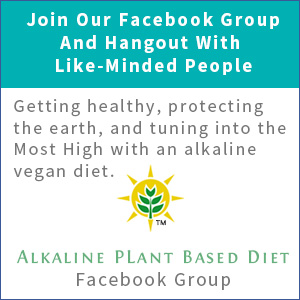Some Studies Are Designed To Deceive About The Benefits Of A Plant Based Diet

Some Studies Deceive
Scientific studies test hypotheses and determine if the results are accurate and reliable. The scientific model’s design eliminates opinion and delivers truth, so most people accept results of a scientific study without question.
The issue sometimes is the design of the study is unintentionally or intentionally flawed. This study, “Constipation and a low-fiber diet are not associated with diverticulosis,” appears to fall into this category.
The study found no association with low-fiber diets and diverticulosis. The study also suggested that high-fiber diets offered no protection against diverticulosis.
The results were correct for the study’s design. The study did not test what it was supposed to test, so the results were misleading.
Recommended DV For Fiber
The daily recommendation for fiber intake is around 32 grams a day. People who evolved eating plant centered diet consumed around 100 grams a day of fiber. 32 grams a day is far less than this amount, but it does offer minimal protection.
Populations in Africa like rural Uganda, were diverticulosis was practically non existent, people ate 70-90% fiber diets.[1] Diets in this range are truly high -fiber diets, and are very protective against diverticulosis.
The Study
The high fiber group in the study consumed at most 25 grams of fiber a day, while low-fiber group consumed 8 grams. Both amounts of fiber were deficient in meeting the daily recommended amount for fiber.
The study found no statistically significant difference between its high fiber group and its low fiber group.
The issue was both diets were fiber deficient, and there shouldn’t have been a difference between the two low fiber groups.
Learn About Foods That Support Health and Vitality on the Dr. Sebi Nutritional Guide »
The problem is the study did not test the effects of a high-fiber diet on diverticulosis. The study tested two low-fiber diets, but made it seem like it tested a high-fiber diet against a low-fiber diet.
Independent researchers did uncover the flaw in the study’s design. The damage wasn’t reversible though. The study spread misinformation to a very large audience. Many of those people weren’t informed about the flaw in the study’s design and still believe in the results.
In contrast, this study involving 47,000 participants showed that vegans had a 78% lower risk of “lower risk of admission to hospital or death from diverticular disease.”[2]
Sources:
[1] What is a high fiber diet?
[2] Diet and risk of diverticular disease in Oxford cohort of European Prospective Investigation into Cancer and Nutrition (EPIC): prospective study of British vegetarians and non-vegetarians. BMJ.







